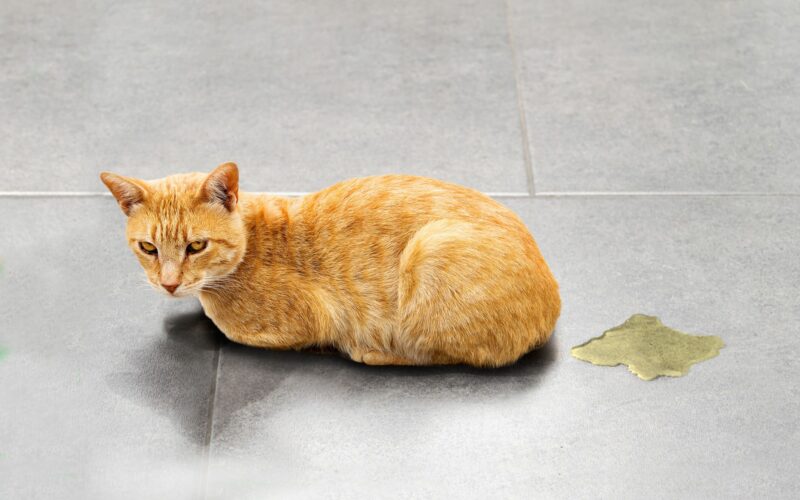If you’re a cat owner, you’ve probably experienced the frustration of your feline friend peeing more than usual. Cat urination frequently, also known as pollakiuria, is a common problem that can cause distress for both cats and their owners.
Whether your cat is peeing so much that you’re constantly cleaning up or worried about your cat’s health, it’s essential to understand the potential causes and how to address the issue. You need to know why cats may urinate frequently and what you can do to help your furry companion.
From bladder irritation and hormonal imbalances to urinary tract infections and diabetes, there are various reasons why your cat may be peeing so much. You can help your cat feel better and reduce urination frequency with the correct diagnosis and treatment plan.
Why Does My Cat Urinate Frequently?
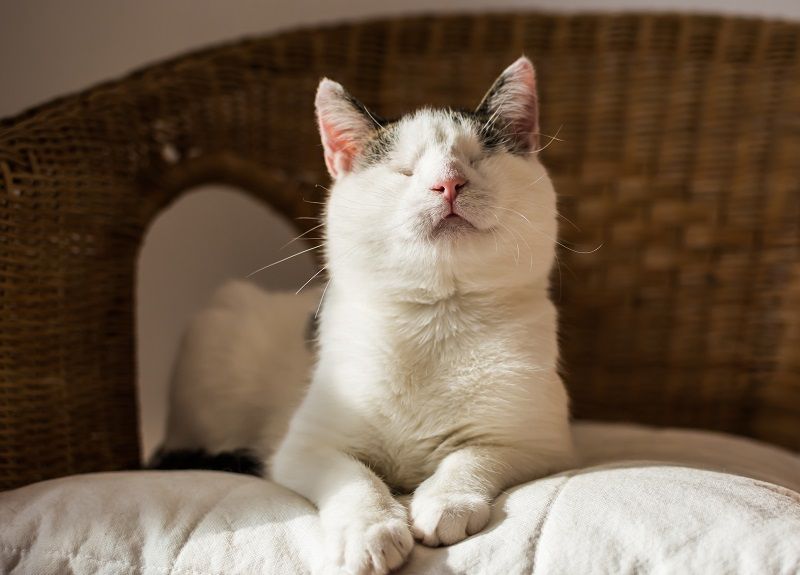
Bladder Irritation
Increased urination frequency, also known as pollakiuria, is one of the primary reasons for this condition. A cat may have bladder irritation if it urinates in tiny volumes regularly.
Sterile, idiopathic inflammation, infection, bladder stones, or blockage can cause bladder irritation. Oliguria, when there is less urine generation by the kidneys or decreased urine clearance from the body, is another cause of increased urination frequency.
Oliguria can occur for several reasons. These problems should be dealt with as emergent situations, and a veterinarian must examine the animal as quickly as possible.
Polyuria
Polyuria, often known as excessive volume, is another possible explanation why cats urinate so frequently.
This is the condition in which a cat urinates in larger volumes than usual. The body’s inability to properly regulate urine production is the most typical reason for this. For example, excess blood glucose is eliminated from the body through urine, which takes a significant amount of water.
It is common for patients with kidney illness to be unable to retain fluids, leading to an increased urine production rate compared to healthy individuals. The inability to concentrate urine is a symptom of several hormonal illnesses, including diabetes and hyperthyroidism; this condition causes patients to urinate excessive amounts of water.
UTI
Urinary tract infections (also known as UTIs) are another prevalent reason cats urinate frequently.
Bacteria cause urinary tract infections (UTIs) in the urinary tract. They might make your cat try to urinate frequently but only be able to release a small amount of urine at a time. It’s also possible that you’ll find blood in your cat’s urine or hear it weeping while it’s doing its business.
Bladder stones, also known as blockage, are another type of medical emergency that can lead to excessive urine in cats because they stop the cat from urinating normally.
Hormonal Imbalance
An imbalance in a cat’s hormones may also cause the animal to urinate frequently. Middle-aged or older cats are more likely to suffer from hyperthyroidism, typically brought on by forming a benign tumor in the cat’s neck.
Because hyperthyroidism can also damage other organs, your cat may have additional health problems that need to be treated. Diabetes is another common reason for cats to urinate frequently. Cats with diabetes may drink more water than usual to eliminate the excess sugar in their bodies.
It is essential to remember that a veterinary examination of these diseases must occur as quickly as possible.
What do I do If My Cat is Peeing So Much?
Here are 6 tips on what to do when you find out that your cat is peeing so much. It’s important to understand that if your cat’s peeing behavior is out of the ordinary, there’s a big chance that it’s health-related. Follow the tips below so you can improve your cat’s situation:
1. Schedule a Vet Appointment for Unusual Urination
It is essential to schedule an appointment with your vet as soon as possible if you see a change in your cat’s urination habits. Peeing often and in higher volume may result from a severe underlying health problem.
The doctor will perform a complete physical examination. They will ask you about when you first noticed the change in behavior, your cat’s eating and drinking habits, and any recent changes in those habits. Additional diagnostic testing will be based on your cat’s symptoms and your veterinarian’s initial exam.
You can ensure that any underlying health issues are identified and treated as soon as possible by acting quickly and scheduling an appointment with your veterinarian. This will help your cat to feel better and recover more rapidly.
2. Provide Detailed Information to Your Vet
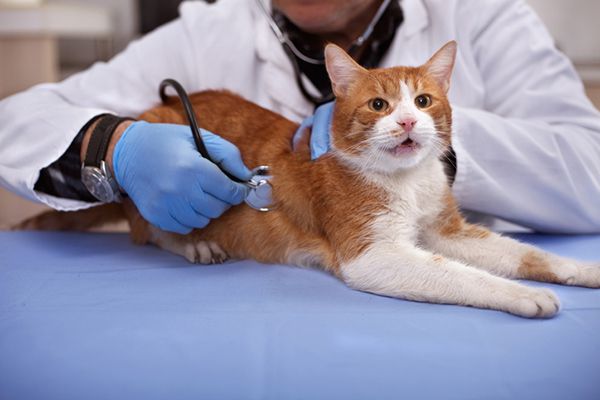
When you schedule an appointment with your veterinarian, you must be prepared with detailed information about your cat’s eating and drinking habits.
Your veterinarian will want to know what types of food you are feeding your cat, how much your cat is eating, and how often your cat is drinking. Additionally, your veterinarian will ask about recent changes in your cat’s eating or drinking habits, as these changes may be related to an underlying health problem.
You can help your veterinarian identify potential health issues and develop a treatment plan tailored to your cat’s needs by providing detailed information about your cat’s eating and drinking habits.
3. Follow Diagnostic Testing Recommendations
Your vet will perform a complete physical examination and ask when you noticed the behavior change. They will also want to know your cat’s eating and drinking habits. They’d like to know if those habits have recently changed and the kind of food you use.
A urine bacterial culture is used to check for a urinary tract infection. The doctor will want to see x-ray images to determine the blockage size. This is normal if they suspect your cat has a distended bladder or blockage due to bladder stones. Surgery or a catheter may be necessary after a confirmed diagnosis. Hormonal imbalances and diabetes may require long-term treatments and care, such as administering anti-thyroid drugs and insulin.
More progressive therapy for hyperthyroidism may include radioactive iodine treatments or surgery to remove the thyroid. Diabetes management may consist of diet changes, daily injections, and more frequent check-ups with your veterinarian. It is essential to follow your veterinarian’s recommendations and follow up as instructed to ensure the best outcome for your cat’s health.
4. Follow Recommendations for Bladder Issues
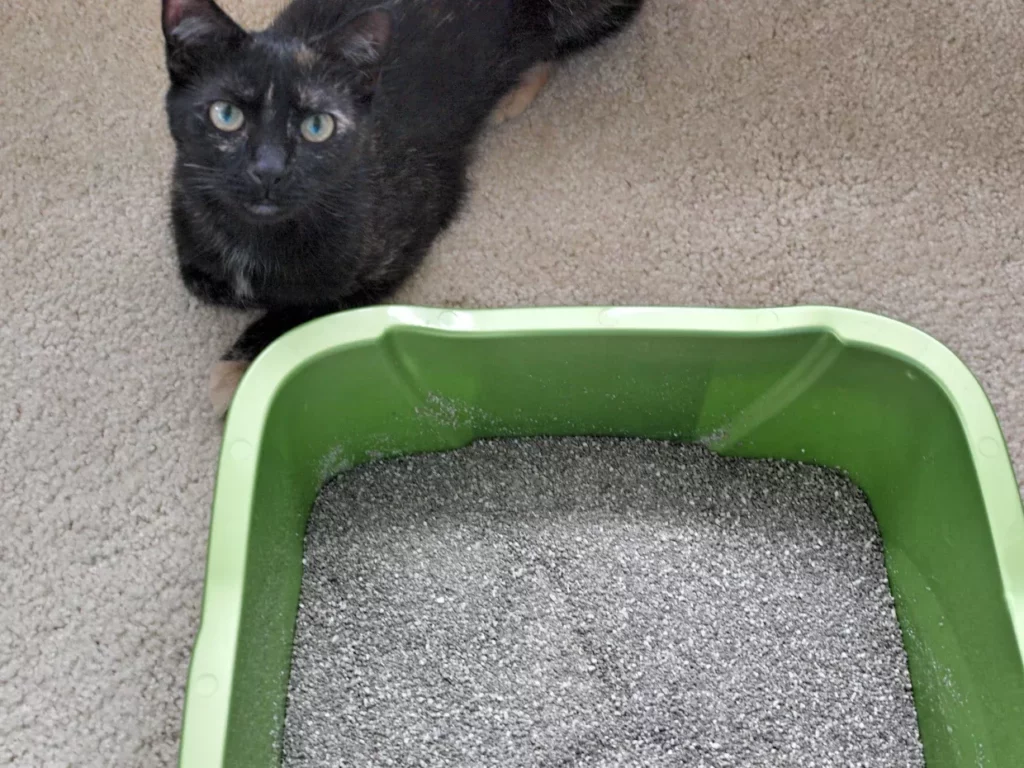
It is essential to follow your veterinarian’s recommendations for treatment if your cat is diagnosed with a distended bladder or blockage due to bladder stones.
The most common treatment for bladder stones is surgery, which involves removing the stones from the bladder. A catheter may sometimes be used to help remove kidney stones. Surgery is typically performed under general anesthesia and may require one to stay the night in the hospital.
Depending on the size and number of stones, recovery time can vary. It’s essential to keep an eye on your cat’s recovery and report any unusual symptoms to your veterinarian.
5. Follow Recommendations for Hormonal Imbalances
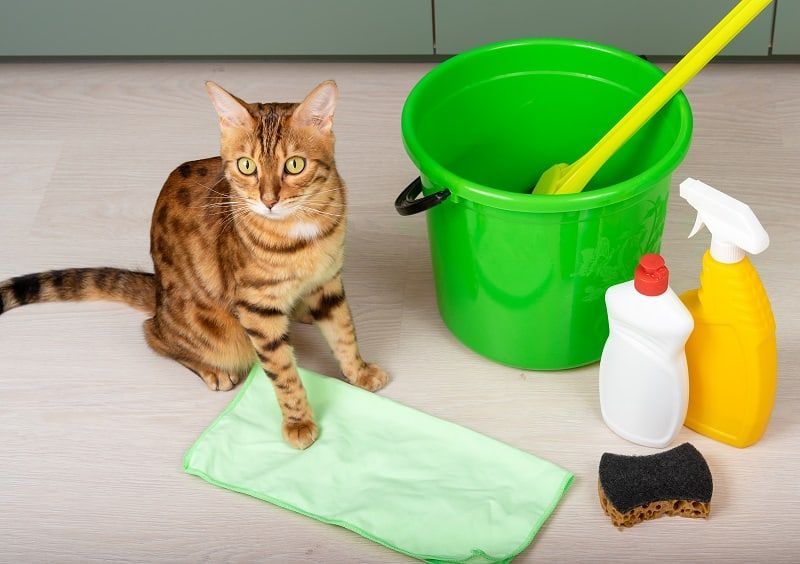
Once your cat is diagnosed with a hormonal imbalance or diabetes, you’ll need to follow your veterinarian’s recommendations for long-term treatment and care.
Hormonal imbalances, such as hyperthyroidism, are typically treated with anti-thyroid drugs. Some cats may also require additional treatment, such as radioactive iodine therapy or surgery to remove the thyroid.
Diabetes is typically managed with diet changes, daily insulin injections, and regular check-ups with your veterinarian. It’s essential to monitor your cat’s glucose levels and adjust treatment as necessary.
6. Prevent Frequent Urination through Diet and Care
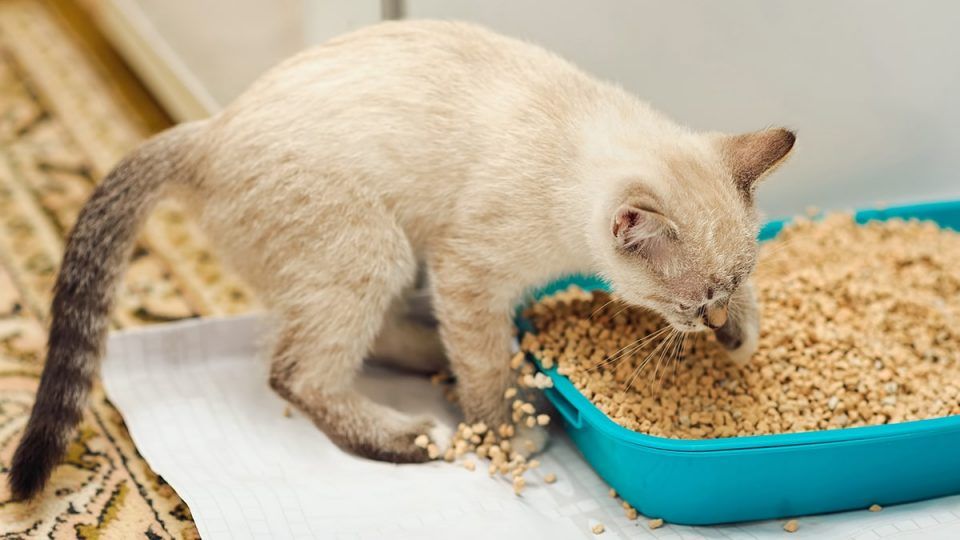
Preventing frequent urination problems can be achieved by providing your cat with a healthy diet, regular exercise, clean water, a clean litter box, and regular well-cat check-ups with your veterinarian. A healthy diet high in protein and low in carbohydrates can help keep your cat’s sugar levels down and maintain a healthy weight.
Additionally, ensuring your cat has access to clean water and a clean litter box can help reduce the risk of bacterial infections. Regular exercise can also play a key role in preventing obesity, contributing to many conditions where frequent urination is a symptom. Regular playtime with your cat, using interactive toys or running around with them, can help them stay active and maintain a healthy weight.
Regarding your cat’s diet, it’s essential to understand that cats are carnivores and require higher amounts of protein. A diet that is too high in carbs can contribute to obesity and diabetes, which can cause frequent urination problems. Providing your cat with a diet high in protein and low in carbohydrates can help keep its sugar levels down and reduce the risk of obesity.
Final Thoughts
In conclusion, frequent urination in cats can be a symptom of a serious underlying health problem. It is essential to schedule an appointment with your veterinarian as soon as you notice a change in your cat’s urination habits. With the proper diagnosis and treatment, your cat can be back to their usual self in no time.
Whether it’s a urinary tract infection, distended bladder, blockage, hormonal imbalance, or diabetes, your veterinarian will work with you to find your cat’s best action. Remember that prevention is critical! Providing your cat with a healthy diet, regular exercise, clean water, and a clean litter box will reduce the risk of frequent urination problems.
Regular well-cat check-ups with your veterinarian are crucial to keeping your cat healthy and happy. You and your cat can enjoy many more happy, healthy years together with the proper care and attention!
Further Reading
